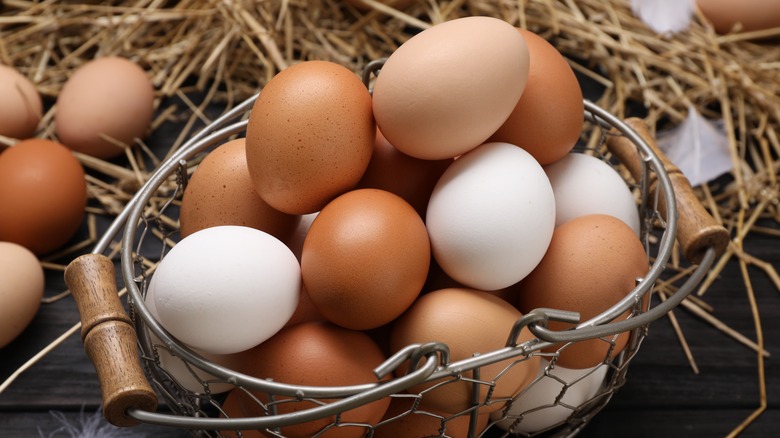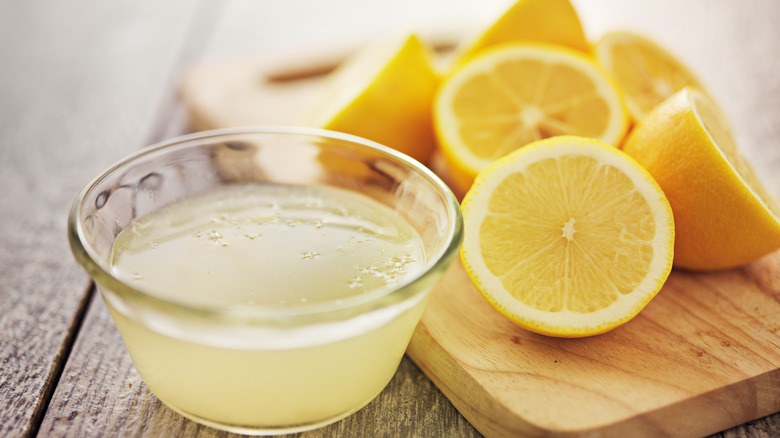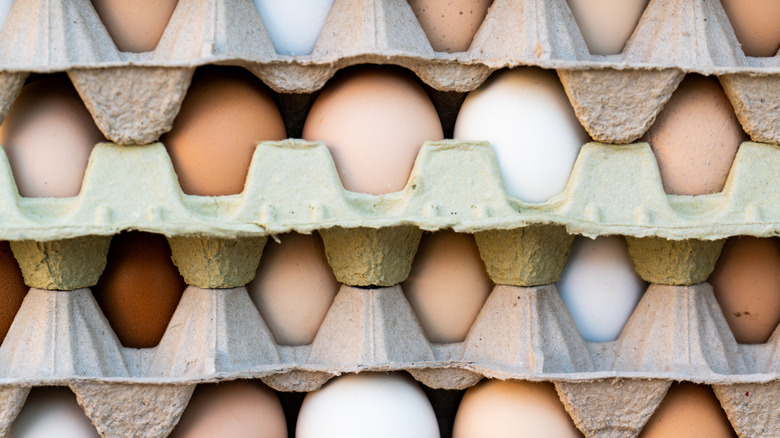Does Lemon Juice Make Raw Eggs Safe To Eat?
You might have seen the tip that says if you're making something that contains raw egg, you can add lemon juice to the eggs to make them safer to eat. The logic seems sound at a glance. When we cook eggs, they're safer to eat. Lemon juice is an acid, which means that it will slightly cook things it's added to — that's the whole principle behind ceviche. But, does it do everything necessary to make eggs safe to eat?
Hypothetically, adding lemon juice to eggs can make them safer to eat, but not necessarily as safe as they could be. Lemon juice can be used to kill salmonella, a bacteria that can be found in eggs and will cause food poisoning. Cooking does this effectively, and the correct preparation with lemon juice can theoretically have the same effect. But, it's a little more complicated than that, and salmonella isn't the only risk factor when you're consuming raw eggs.
How adding lemon juice to raw eggs kills salmonella
If you want to use lemon juice to make your raw eggs safer to eat, you can't just squeeze a few drops into the egg and then tuck in. A 2002 study in Letters in Applied Microbiology examined salmonella in mayonnaise as they altered the ratio of egg to citric acid, tested different periods of time, and left the mix at different temperatures. They found that both the amount of lemon juice and the length of time the juice is left in the eggs before consuming greatly affect the amount of salmonella that might survive.
The scientists found that a ratio of one egg yolk to between 20 and 35 milliliters of lemon juice held at 22 degrees Celsius/72 degrees Fahrenheit (roughly room temperature) would make the raw eggs safe to consume after 72 hours. Increasing the amount of lemon juice to over 35 milliliters for each egg yolk reduces the required time to 48 hours. To make your eggs safer to eat raw by just adding lemon juice requires a lot of forward planning. Ultimately, there is an easier and safer way to prep raw eggs for safe consumption.
The better option
The lemon juice trick with raw eggs is all about removing salmonella without cooking the eggs. However, that doesn't really mean that the eggs are "safe" to eat raw as there is still a risk of E. coli being present, and the lemon juice will have no effect on that. But, there are plenty of recipes that call for raw egg and couldn't be made with cooked egg, including countless desserts, delicious eggnog, and, of course, mayonnaise.
The simple solution is to make sure that you are using fresh pasteurized eggs. Pasteurized eggs haven't been cooked, but they have been heated enough to kill off any harmful bacteria before you buy them. You'll find them labeled as such at the grocery store, and they're generally safer to handle. You can also use cartons of egg whites or egg yolks. Pasteurized eggs don't act in quite the same way as unpasteurized eggs, but the same can be said for eggs with lemon juice added that have then been allowed to sit for 48–72 hours. You might only want to pull pasteurized eggs out for dishes where they'll be raw, but they're a great resource to be aware of.


